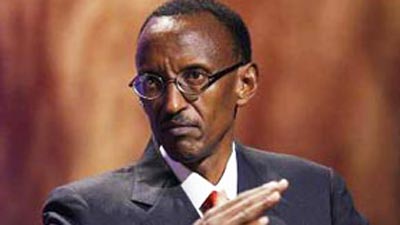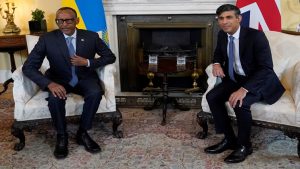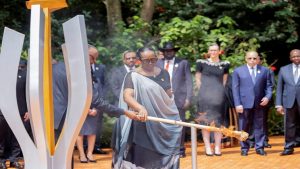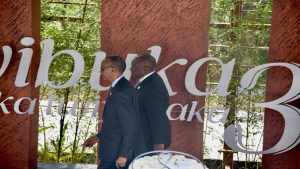Friday marks 23 years since the worst genocide in African history took place in Rwanda. As Rwandans reflect and celebrate the nation’s successes in moving forward from that dark period, the East African nation’s government is fighting for the term “genocide” to be officially removed by the United Nations.
There is a beacon of stability in a sea of conflict in the modern-day Rwanda which has emerged from the genocide and war-ravaged country after ethnic massacres which began in 1994.
President Paul Kagame commanded the rebel force which ended the genocide.
Under Kagame’s leadership, the East African nation has enjoyed peace, stability and economic growth. Kagame has worked hard to change global perceptions about Rwanda. Now the country is seen as a model state and a sound investment destination.
He became president following his predecessor’s resignation in 2000. What followed were bold post-genocide development policies.
Then came stringent measures to unify Rwandans including a ban on all ethnic titles. Kagame’s economic management saw rapid economic growth.
Rwanda’s economy remains the region’s best performer. Yet Kagame’s opponents have remained ever-vocal. Political analysts say Kagame’s track-record as a reformer and unifier outweighs the negative aspects.
“We’ve seen it with President Hisabre of Chad – that retribution people are very worried about it. You know they’re struggling in Senegal and going to court so they’ll have to pay for it. Many of them are afraid to pay for this and it’s a huge issue,” says Political Analyst Kofi Koakou.
He admits though that despite its successes, Rwanda’s relations especially with the DRC are a concern. At home opponents accuse Kagame’s administration of violating human rights with impunity. He won a landmark court challenge to extend his rule.
Following a 2017 constitutional amendment which also went his way, Rwanda’s President is set to rule to 2034.
– By Tumaole Mohlaoli






